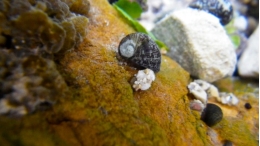Researchers rebuild the tree of life of freshwater macroinvertebrates in the European continent
A study from the Faculty of Biology and the Biodiversity Research Institute of the UB (IRBio-UB) analysed how water macroinvertebrate species, such as beetles, mosquitos and dragonflies, evolved and diversified since their beginnings. With the analysis of the ecological features of about 6,600 European species, researchers rebuilt the functional space they occupy. At the same time, they used DNA sequencing to rebuild the tree of life of aquatic macroinvertebrates –evolutionary and phylogenic relation between species- to estimate when they first appeared and their evolution. Results prove previous studies right, which suggested the number of species of each lineage does not depend on the evolutionary time. This study concludes that oldest lineages have more functional diversity –they can do more things and live in more habitats- than younger ones, whose functional diversity is conditioned by oldest lineages which colonized that habitat previously.
The new study has been selected as the article of the month (July) in the journal Ecography. Its first author is the ecologist Cesc Múrria (IRBio-UB) and is led by Professor Núria Bonada (IRBio-UB), head of the research group Freshwater Ecology, Hydrology and Management (FEHM) of the UB. Other participating experts are Anna Papadopoulou (Doñana Biological Station, CSIC), Sylvain Dolédec (University of Lyon, France), and Alfried Vogler (Natural History Museum – Imperial College London, United Kingdom).
